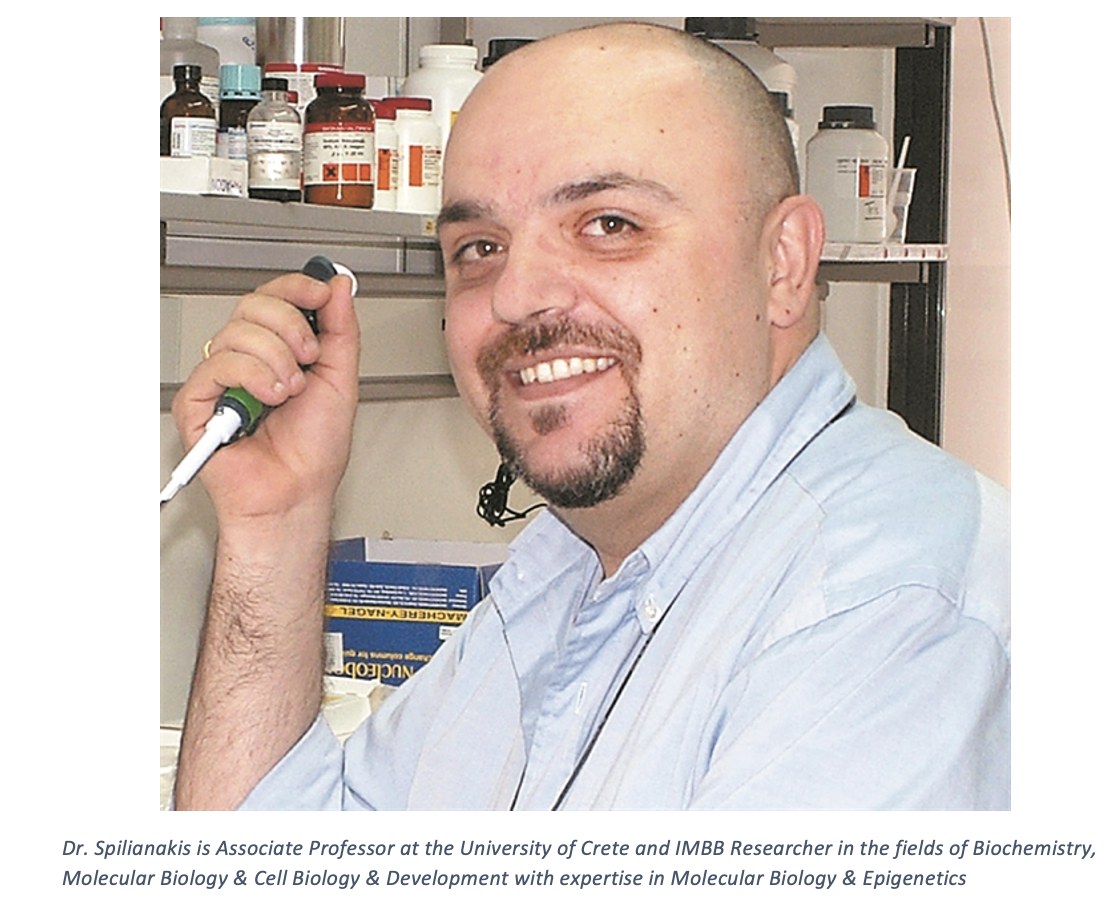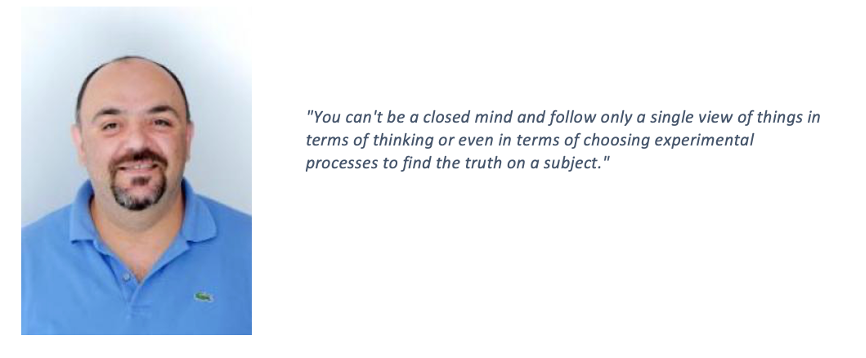Getting to know our PIs: Dr. Charalampos Spilianakis
May 12, 2021, George Angelakis

At iGEM Crete we believe that in order to cultivate and maintain a balanced relationship between the scientific community and the world, it is necessary to strengthen the bridges of trust between us. So what could be more direct than talking to our Project Instructors about things of everyday life and give you -through our conversation- the opportunity to get to know a little better the scientists who are leading the University of Crete’s team in the iGEM 2021 Competition.
What attracted you to biology in the first place and when did you decide that a research career was what you wanted to do?
In biology I was primarily attracted to studying mechanisms that could help me find drugs to cure diseases in humans. I initially aimed for medicine but even if I became a doctor, I always intended to pursue a research career. Later of course I realized that if you really want to develop drugs to cure diseases it's not easy to do so as a doctor because you're basically giving drugs that others have developed. Working in the field of biology seemed a more direct pathway in order to understand how to develop treatments. And that's what I'm still trying to do, for example I work with mammals because I want to be close to humans.
As for the other part, in my second year of biology I had already arranged to join an Erasmus programme to the Department of Biological Sciences at the University of Manchester and as soon as I came back from that, before the third year started, I had started working as an undergraduate student in Mr Papamatthaikis' lab. It was there that I came into contact with the research’s way of thinking and,in a way, it seemed that following the undergraduate-graduate-doctoral path was a one-way street. And then again it was considered a one-way street to pursue post-doctoral studies abroad ; because that was the philosophy of IMBB at that time. That's how my way of thinking developed.
So I saw in your resume that between 2003 and 2007 you were a postdoctoral fellow in the Department of Immunobiology at Yale University School of Medicine in the USA under the supervision of the well-known Professor Richard A. Flavell. What is the most important thing that you keep from that four-year period that has helped you in your personal and professional career?
I will tell you two things that I always tell my students. When I was doing my PhD with my mentor at the time, Mr Papamatthaikis, I learned to do science. When I did my post-doc with my mentor Mr. Flavell, there, I learned essentially the "politics" of science-how to publish papers and so on. But what I keep as a scientist is learning how to do science i.e. my PhD studies. You can learn the "politics" anywhere. But for better or worse that's what I learned in America.
In physics, as you surely know, the "next big thing" is to find a unifying theory. In other sciences we can find similar examples. In a science as multidimensional as biology do you think that synthetic biology could be one of the "next big things"?
Yes. I think it is very likely because it could cover and unite the multidisciplinarity that exists in the scientific field of biology. So synthetic biology could be something very useful and meet the requirements that all the different subject areas require , so the answer is yes of course.
So (and since in your lab you apply a combination of biological, molecular, biochemical, imaging and genetic approaches to complete your research) how important do you consider a multidimensional approach to a biological problem to be?
I believe that it cannot longer be done otherwise in biology. You can't be a closed mind and follow only a single view of things in terms of thinking or even in terms of choosing experimental processes to find the truth in a subject. So I think it is essential to include physics, chemistry and mathematics in the process now. Otherwise I think one cannot meet the modern requirements to be competitive and also get closer to the truth.

And would you, as a scientis,t be satisfied with synthetic biology as a platform on which one can “marry” all these different aspects of science?
Well we've been using synthetic biology all these years anyway. From synthesizing whole genes to cloning them and studying them. So I think it's a compelling element that we use anyway in research. It's not so much complementary as it is necessary.
And one last question: in the last couple of years the Covid-19 pandemic has given a big boost to epidemiological research and also to vaccine production research. Do you think that synthetic biology can contribute to this research, and if so, how?
The answer is yes, with my hand on my heart. And perhaps you could not find a better answer than the Project that this year's iGEM Crete 2021 team has, where they are utilizing synthetic biology practices in order to complete their goal,which is to develop a vaccine to fight the Covid-19 pandemic. So you can actually see it in action!
About our blog
Daily articles related to synthetic biology by our great team of iGEM Crete.